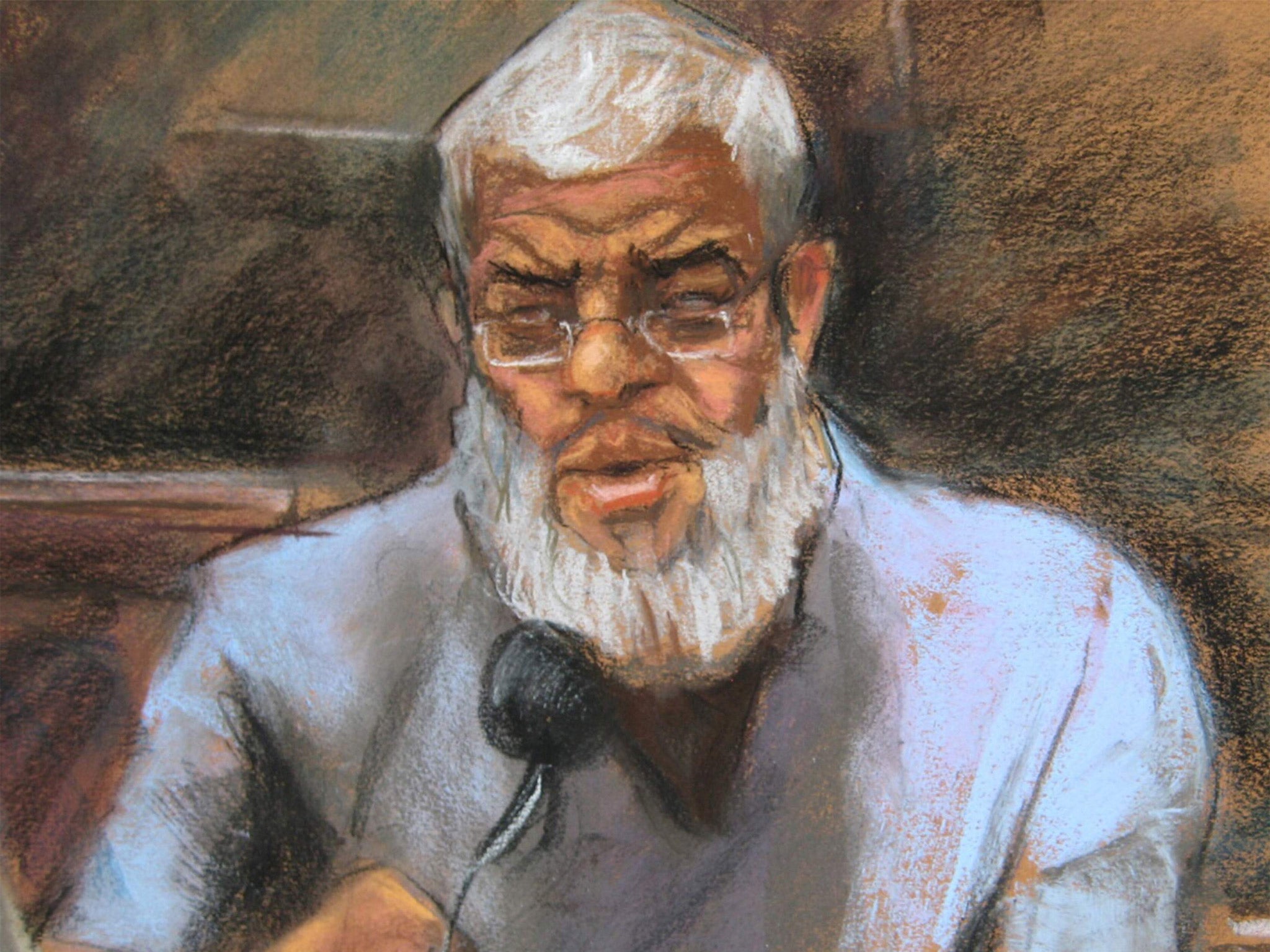Abu Hamza trial: Prosecutor shows court imam’s ‘jihad encyclopedia’ as terror trial closes
Prosecutor describes defendant's protestations of innocence as 'absurd'

Your support helps us to tell the story
From reproductive rights to climate change to Big Tech, The Independent is on the ground when the story is developing. Whether it's investigating the financials of Elon Musk's pro-Trump PAC or producing our latest documentary, 'The A Word', which shines a light on the American women fighting for reproductive rights, we know how important it is to parse out the facts from the messaging.
At such a critical moment in US history, we need reporters on the ground. Your donation allows us to keep sending journalists to speak to both sides of the story.
The Independent is trusted by Americans across the entire political spectrum. And unlike many other quality news outlets, we choose not to lock Americans out of our reporting and analysis with paywalls. We believe quality journalism should be available to everyone, paid for by those who can afford it.
Your support makes all the difference.Abu Hamza used his position as the imam of a north London mosque in the late 1990s to wage a campaign in support of deadly jihad around the world and has repeatedly lied about it under questioning on the witness stand, prosecutors have told a New York jury.
The defendant “devoted his life to violent jihad”, said prosecutor Ian McGinley, in closing statements. “That was his choice. He spoke about it, he lived it and he was proud of it.”
Leading the jury through the 11 charges in the case, Mr McGinley described as “absurd” the protestations of innocence offered by Abu Hamza during almost four days on the stand. “Ladies and gentlemen, he lied to you,” Mr McGinley told the court.
He said it was proven that Abu Hamza, 56, conspired to plan the kidnapping of foreign tourists in Yemen in 1998 and that he sent two men to Oregon to help set up a jihad training camp in 1999.
The case, which began in mid-April, was set to go to the jury for deliberation either Wednesday night or Thursday morning. Addressing those charges related to the alleged camp in Bly, Oregon, Mr McGinley showed the jury items seized from the mosque by London police before his conviction in Britain – a camouflage suit, a hatchet, an army helmet and a gas mask. Also in evidence was a volume of an encyclopedia of jihad found in his home. “This is not a dictionary, this is not the Encyclopedia Britannica, it’s a manual on how to kill and kidnap,” he said.
Mr McGinley described as “nonsense” the claim by the defendant that he had not known that two followers from his mosque had gone to Oregon to set up the camp. He also sought to dismantle the notion he had not known in advance of the December 1998 kidnapping in Yemen carried about by fighters trying to topple the then government that left four of the hostages dead.
“He would have you believe he was misunderstood, that he had no command, that his men were free agents, that it was everyone else’s fault,” said Mr McGinley. “He was the boss, the leader; the men that directed his followers to act on his words… it’s that simple.”
Mr McGinley spoke of a fax sent to the defendant by a follower, James Ujama, describing his readiness to establish the camp in Bly. On the stand, Abu Hamza said he considered the fax a “hallucination” and threw it away. The court has heard two of his associates did travel to Bly.But for the defence, Jeremy Schneider said the prosecution had based its case on Abu Hamza’s words and “not his deeds”. He asked the jury to move past their “gut feelings” about him.
Abu Hamza denies all the charges.
Join our commenting forum
Join thought-provoking conversations, follow other Independent readers and see their replies
Comments